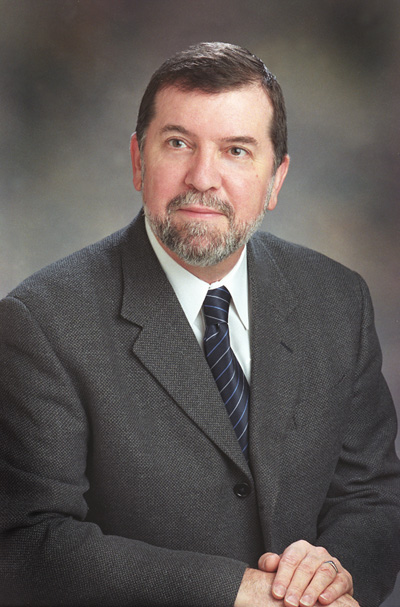Contact: Maridith Geuder

Liam Leightley, new head of MSU's forest products department
An industry executive who served as global manager for a major manufacturer of specialty chemicals is the new head of Mississippi State's forest products department.
Liam E. Leightley, who assumes his new duties after a decade with Pennsylvania-based Rohm and Haas, now will lead the largest state-funded laboratory of its kind in the United States. Formal approval of his appointment is pending by the State Board of Trustees, Institutions of Higher Learning.
Established in 1964, the forest products department is part of MSU's Forest and Wildlife Research Center and serves an industry that contributes more than $14 billion annually to Mississippi.
"Dr. Leightley has a wealth of academic, governmental and industrial experience," said Sam Foster, dean of the College of Forest Resources and research center director. "His diverse research and international knowledge will be an asset to the university and to Mississippi's forest products industry."
Leightley, whose research interests include technology transfer, wood protection and marketing, also has held positions as visiting professor at the U.S. Department of Agriculture's Forest Products Laboratory in Madison, Wis., and as research manager at Queensland Department of Forestry in Australia.
Leightley holds a bachelor's degree in biochemistry and microbiology from the University of Bradford and a doctorate from the University of Portsmouth, both in the United Kingdom.
His career interests have focused on planning and directing business development policies, objectives and initiatives as well as developing new marketing initiatives, assessing new markets and analyzing business opportunities.
Leightley has extensive leadership experience in the globalization of wood products to key market segments in the areas of building products, coatings, plastics, and woods.
He worked for two years in Japan as a research department manager with the Rohm & Haas specialty chemical company. While there, he established a biocides research department and directed research and development for the biocides business in the Asia Pacific Region.
Biocides are used to control organisms that attack wood, food crops and other products.